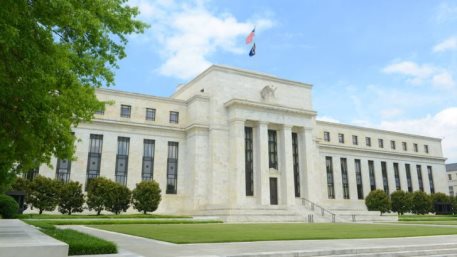
As we enter another important week for global financial markets, several major events and data releases are poised to impact capital flows, trading sentiment, and monetary policy expectations. Investors will closely monitor central bank moves and macroeconomic reports to gauge the future trajectory of inflation, economic growth, and interest rates. Here’s a breakdown of the key events that will influence global capital markets this week.
Federal Reserve Remarks and January Policy Meeting Minutes
Remarks from Federal Reserve Officials:
Throughout the week, remarks from several Federal Reserve (Fed) officials are scheduled to provide fresh insights into the central bank’s thinking regarding inflation and interest rate policy. After the recent rate hikes, market participants are keenly awaiting any signals about the Fed's future course of action, particularly as inflation shows signs of easing but remains above target. Investors will scrutinize these speeches for clues on whether the Fed will continue with its hawkish stance or begin slowing the pace of rate hikes.
Fed January Policy Meeting Minutes:
Midweek, the release of the minutes from the Federal Reserve’s January meeting will provide additional transparency into the decision-making process that led to the most recent policy adjustments. These minutes could reveal internal debates on the pace and magnitude of future rate hikes, as well as any evolving concerns about inflation, labor markets, and overall economic growth. A dovish tone in the minutes may fuel risk-on sentiment, while a more hawkish stance could weigh on stocks and bonds.
Key U.S. Data: Final January UMich Sentiment Survey
University of Michigan Sentiment Survey (Final January Data):
The final data for the University of Michigan's consumer sentiment survey for January will be released this week. Consumer sentiment is a vital indicator of economic health, reflecting consumers' views on personal finances, business conditions, and buying intentions. A significant revision in sentiment could impact market expectations about consumer spending, which drives much of the U.S. economy. Higher-than-expected sentiment data may bolster expectations of stronger economic resilience, while weaker sentiment could heighten concerns about a potential recession.
UK Economic Data: Wage Growth and CPI Inflation
UK Wage and CPI Inflation Data:
In the United Kingdom, two critical reports will be released this week: wage growth data and consumer price index (CPI) inflation figures. Both data sets will have a major bearing on market expectations for the Bank of England’s (BoE) future policy path. The UK’s high inflation remains a concern, and persistently strong wage growth could signal further inflationary pressures. If inflation exceeds forecasts or wage growth accelerates, the BoE may be pressured to continue raising interest rates aggressively. On the other hand, softer inflation or wage growth data may reduce the likelihood of further rate hikes.
Japan's Q4 GDP and CPI Inflation Data
Japan Q4 GDP Report:
Japan’s fourth-quarter GDP figures will be closely watched this week, providing insight into the country’s economic performance. Japan’s economy has faced significant headwinds from global supply chain disruptions, inflationary pressures, and fluctuating demand. An underperforming GDP report could prompt the Bank of Japan (BoJ) to maintain its ultra-loose monetary policy stance, while stronger growth might lead to speculation about a gradual tightening of policy.
Japan CPI Inflation:
Japan’s CPI inflation data will be another major release. Inflation in Japan has been creeping higher, although it remains modest compared to other major economies. The BoJ has been cautious about tightening its policy, but persistently high inflation could force a recalibration of its approach. Any surprising increase in inflation could lead to volatility in the yen and Japanese government bond markets, with global ripple effects on interest rate expectations.
Central Bank Policy Meetings: Australia and New Zealand
Australia and New Zealand Central Bank Policy Meetings:
Both the Reserve Bank of Australia (RBA) and the Reserve Bank of New Zealand (RBNZ) will hold their policy meetings this week, adding to the global central bank narrative. Australia and New Zealand have been grappling with inflationary pressures, although their economies have shown resilience. Market participants will focus on whether these central banks decide to raise interest rates further or signal a pause. The outcomes of these meetings could impact the Australian and New Zealand dollars, as well as broader investor sentiment in the Asia-Pacific region.
Conclusion: A Week of Critical Market Drivers
With a packed schedule of central bank remarks, key economic data, and monetary policy decisions, this week promises to bring significant volatility to global capital markets. The Federal Reserve’s communication, in particular, will play a central role in shaping the outlook for U.S. and global assets. Meanwhile, developments in the UK, Japan, Australia, and New Zealand will offer investors deeper insight into the state of the global economy and inflation dynamics.
Stay tuned to these pivotal events, as they are likely to create opportunities and risks for traders and investors alike. Keep an eye on market reactions to central bank commentary, inflation data, and GDP releases as the landscape of global monetary policy continues to evolve.




















